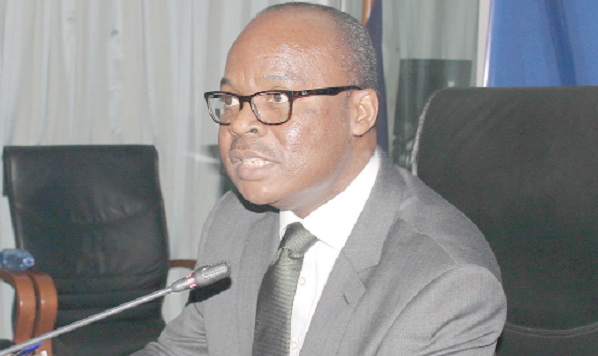
BoG hints of sanctions for ‘erring staff’ over role in financial sector distress
The Governor of the Bank of Ghana (BoG), Dr Ernest Addison, has hinted of possible sanctions for staff of the central bank whose actions led to the ongoing financial turmoil and prompted a historic clean-up that is projected to cost the nation some GH¢4.6 billion.
The sanctions will apply to current and former employees who played a part in bringing the financial sector to its current state, Dr Addison said on May 21.
After referring directors and shareholders of troubled financial institutions to the anti-graft body, the Economic and Organised Crimes Office (EOCO), for investigation and possible prosecution, the governor said staff of BoG could be next on EOCO’s watch list, as the process to help establish the root cause of the challenges, punish the culprits and clean the sector continues.
He told journalists at a press conference that the “accountability process” into the current challenges was ongoing and pledged that everybody “will come to account to us on why some of these things happened.”
“You know that EOCO has already invited some of the shareholders and directors to come and explain some of the activities that took place.”
“Do not be surprised if even internal people, and I am talking about BoG staff, will also be invited,” he said in response to a question on what actions the central bank intended to take against its own staff who might have contributed to the current state of affairs.
Financial sector clean-up
Since replacing Dr Abdul-Nashiru Issahaku as the BoG Governor in April 2017, Dr Addison and the new team have sorted to strengthen the financial sector through far-reaching decisions that have so far led to the collapse of two banks and the placement of two others under an administrator and advisor.
After withdrawing the licences of the UT and Capital banks in August last year, the BoG placed the uniBank under its administration for six months to allow for a proper audit and return of the bank to solvency. It also appointed an advisor for Sovereign Bank to help address some “governance and capitalisation challenges”, a statement that announced the action said.
Subsequently, EOCO invited the directors of UT and Capital banks to help in investigations leading to the collapse of the banks.
Dr Addison said this was part of a wider process meant to establish the true cause of the exercise.
While explaining that the process to clean the sector through various actions did not end with the withdrawal of a license or appointment of an administrator, he said the accountability process was such that “all parties will subject to interrogation”.
Prior to revoking the licences of the two banks, the BoG had placed a temporary freeze on the issuance of new licences, as part of a grand scheme to help contain the proliferation of financial institutions in the country.
Within the BoG, Dr Addison also initiated reforms that saw some departments realigned, staff transferred and new blood injected into the banking supervision department (BSD).
The governor explained that these measures were to help prevent a repeat of some lapses that occurred in the past.
One of them, he said, was the rapid licensing of banks within a short period of time.
While declining to say that the rapid licensing smacked of lack of proper diligence, Dr Addison said it was one thing that should not be repeated, given the fruits it was bearing.
He thus gave the assurance that the BoG would put in place strong structures to help strengthen its supervision mechanism to make the financial sector more resilient and robust enough to support economic development.